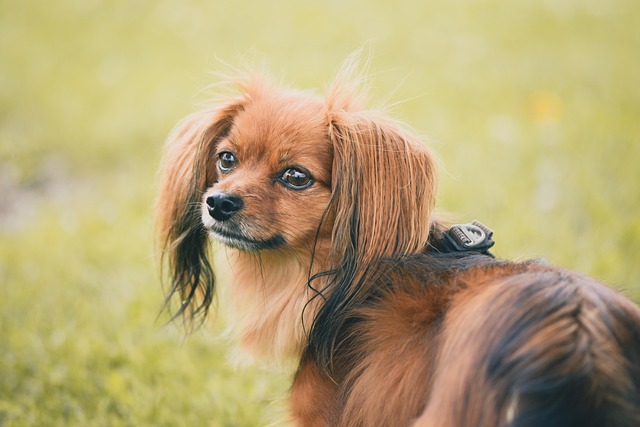
How do i train my dog to be obedient?
Watching your dog dart across the park ignoring your calls isn’t just frustrating—it can put them at risk near busy streets or public spaces.
Yorkshire terrier puppies are tiny, energetic bundles of joy—but their small size can make potty training feel tricky for new owners. These little pups have smaller bladders, meaning they need more frequent trips outside, and their curious nature might lead them to wander off instead of focusing on the task at hand. It’s not uncommon to feel frustrated at first, but with the right approach tailored to their size and personality, success is totally achievable.
The key to potty training any puppy, especially a Yorkie, lies in positive reinforcement—a method backed by animal behaviorists that builds trust instead of fear. Yorkies are smart and eager to please, so rewarding them immediately (within 2 seconds) for going potty in the right spot works wonders. Keep tiny, soft treats in your pocket for these moments; a little cheese or a training biscuit will make them associate “going outside” with something great. Never scold or hit your pup if they have an accident—this can make them scared to go near you when they need to go, leading to more hidden messes.
 Start with a strict schedule that aligns with their tiny bladders. Take your Yorkie puppy outside first thing in the morning, right after meals, naps, playtime, and before bed—this adds up to 5-6 trips a day. When you’re outside, pick a consistent spot in your yard or a designated dog area (always bring poop bags to clean up—most U.S. cities fine owners for leaving dog waste). Use a simple cue like “Go potty” repeatedly; over time, they’ll link the phrase to the action. If they go, celebrate with a treat and excited praise—keep the moment positive and brief so they don’t get distracted.
Start with a strict schedule that aligns with their tiny bladders. Take your Yorkie puppy outside first thing in the morning, right after meals, naps, playtime, and before bed—this adds up to 5-6 trips a day. When you’re outside, pick a consistent spot in your yard or a designated dog area (always bring poop bags to clean up—most U.S. cities fine owners for leaving dog waste). Use a simple cue like “Go potty” repeatedly; over time, they’ll link the phrase to the action. If they go, celebrate with a treat and excited praise—keep the moment positive and brief so they don’t get distracted.
For apartment dwellers, a puppy pad (placed in a quiet corner, never near their food or bed) can be a temporary solution, but aim to transition to outdoor trips as soon as possible. Always clean up accidents indoors with an enzyme-based cleaner—regular soap leaves smells that might make them go back to the same spot. Also, make sure your Yorkie is up-to-date on core vaccines before taking them to public parks or sidewalks; U.S. laws require proof of vaccination, and it keeps your pup safe from diseases like parvovirus.
Potty training a Yorkie puppy takes patience—most will master it by 4-6 months, but some might take a little longer. Stay consistent with the schedule, keep rewards handy, and remember that accidents are part of the learning process. By focusing on positivity and understanding their small needs, you’ll build a strong bond with your Yorkie while teaching them a crucial life skill. Before you know it, those trips outside will be smooth, and you’ll both feel proud of the progress you’ve made together.

Watching your dog dart across the park ignoring your calls isn’t just frustrating—it can put them at risk near busy streets or public spaces.

New puppy owners often find themselves rushing to clean up accidents before they set in, and that’s where puppy pad training becomes a game-changer.

If you've noticed your dog's waistline disappearing and your veterinarian has mentioned those few extra pounds, your first instinct might be to simply reduce the amount of food in their bowl.

Training a dog to use a designated spot indoors isn’t as daunting as many new owners fear, but it does take consistency and an understanding of your pet’s needs.

That moment of dread on a walk is all too familiar for many new dog owners. You see another dog approaching down the sidewalk of your neighborhood

If the sight of another dog on your neighborhood walk makes your heart sink as your own dog erupts into a frenzy of barking and lunging, you're not alone.